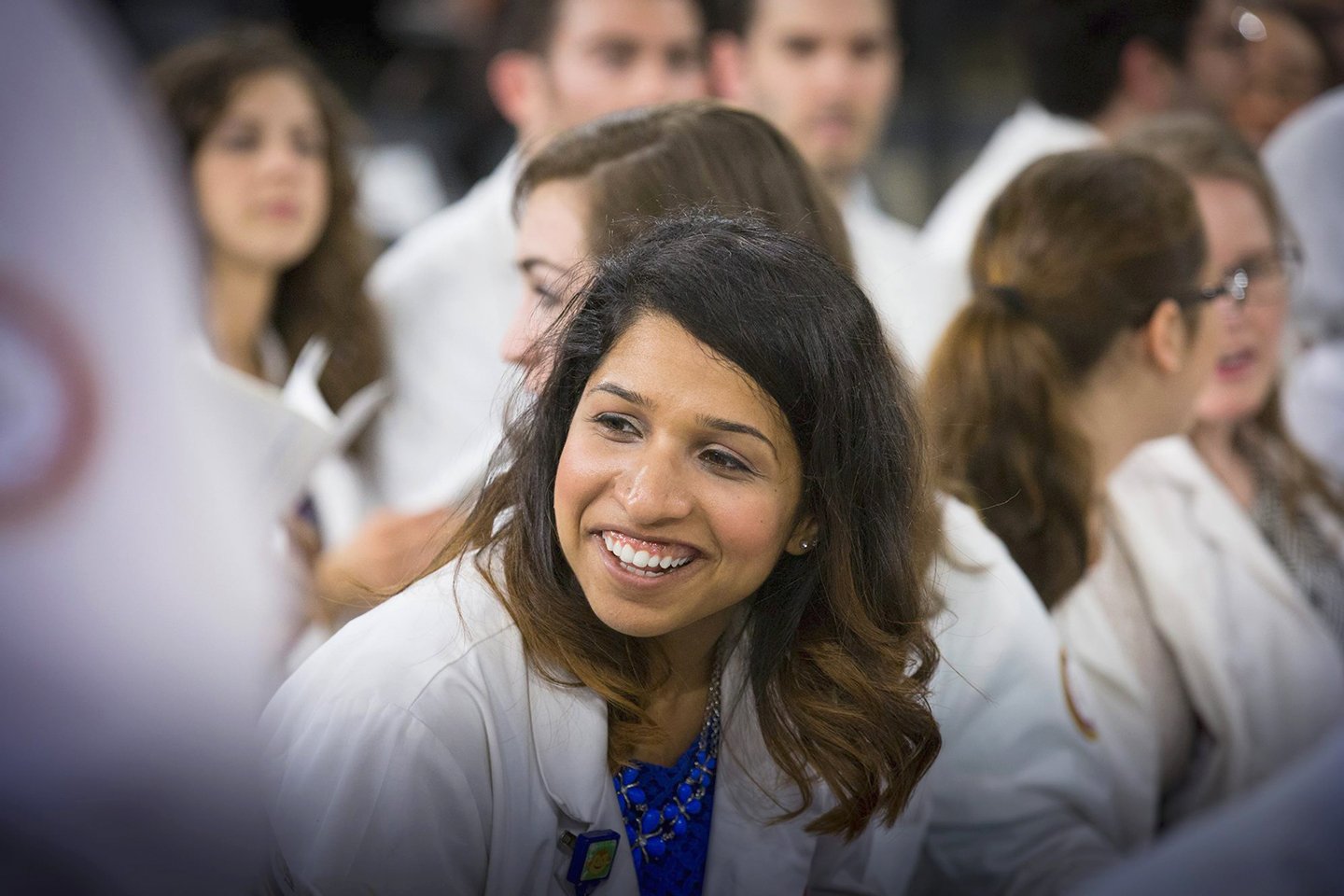
Aishwarya Navalpakam went into medicine to make a difference, and the third year Oakland University William Beaumont (OUWB) medical student is doing just that, already receiving recognition for her work.
Navalpakam received the United States Public Health Service 2016 Excellence in Public Health Award for her research regarding female undergraduate students’ perceptions of the Human Papilloma Virus (HPV) and its vaccine.
Vaccines in general, says Navalpakam, carry a stigma, and the HPV vaccine even more so because it specifically protects against a sexually transmitted infection (STI) that causes 99 percent of cervical cancer cases.
“This is the only vaccine to prevent cancer. The hard thing is they start recommending it around nine years old, but because it’s associated with an STI parents are very hesitant, which is understandable,” Navalpakam says.
Navalpakam surveyed 192 female OU students to gauge their knowledge of and attitude toward HPV and the vaccine. She determined that even after learning more about it, many participants believed themselves to be at low risk.
“There’s knowledge, but there’s not an understanding that shows that not only do we need to educate on what HPV and what the vaccine does, but that we need to educate that they are still at risk,” says Navalpakam, who presented her findings at the 2015 General Meeting of the American Society for Microbiology last May and published in PLOS ONE last month.
To improve vaccination rates and to further educate the OU community on health issues, Navalpakam co-founded OUWB’s Raising Awareness In the Student Environment (RAISE). Still, with all her efforts, Navalpakam is humble about and grateful for the accolades.
“I’ve been really fortunate in the support I’ve had from OUWB and everyone. I’m so honored,” she says. “Worldwide cervical cancer is one of the top cancers that kills women.”
And, says Navalpakam, as future physicians, it’s important to know how to address such important issues as vaccinations with patients.
“I’ve always been interested in public health and education,” says Navalpakam. “I want to be a pediatrician and I feel like this is an everyday issue I’m going to face in the future and it was important to me to learn how to address this.”
Navalpakam credits her mentor Inaya Hajj Hussein, Ph.D., OUWB assistant professor in biomedical sciences, for setting her on this specific path. Hajj Hussein says she was not surprised Navalpakam received national recognition, and hopes that it will spur other students to strive to do the same.
“OUWB School of Medicine creates the right environment for its students to be creative, proactive, and motivated to serve their communities. This spirit goes back to the way we select and train our students in being responsible for the health of the community and by considering activities and volunteer community work as important criteria for admission,” says Hajj Hussein, adding that the award sheds light on the faculty’s mission of being tutors, educators, mentors, and role models for their students, under the leadership of a visionary administration. “At the end, as her mentor, I wish Aishwarya all the success in her career and ask her to keep her momentum in this direction.”
Navalpakam says that such support from her school, her mentor and her classmates makes all the difference.
“I’ve been able to reach out to more people and I think what’s most valuable is how to reach my patients in the future,” says Navalpakam.

